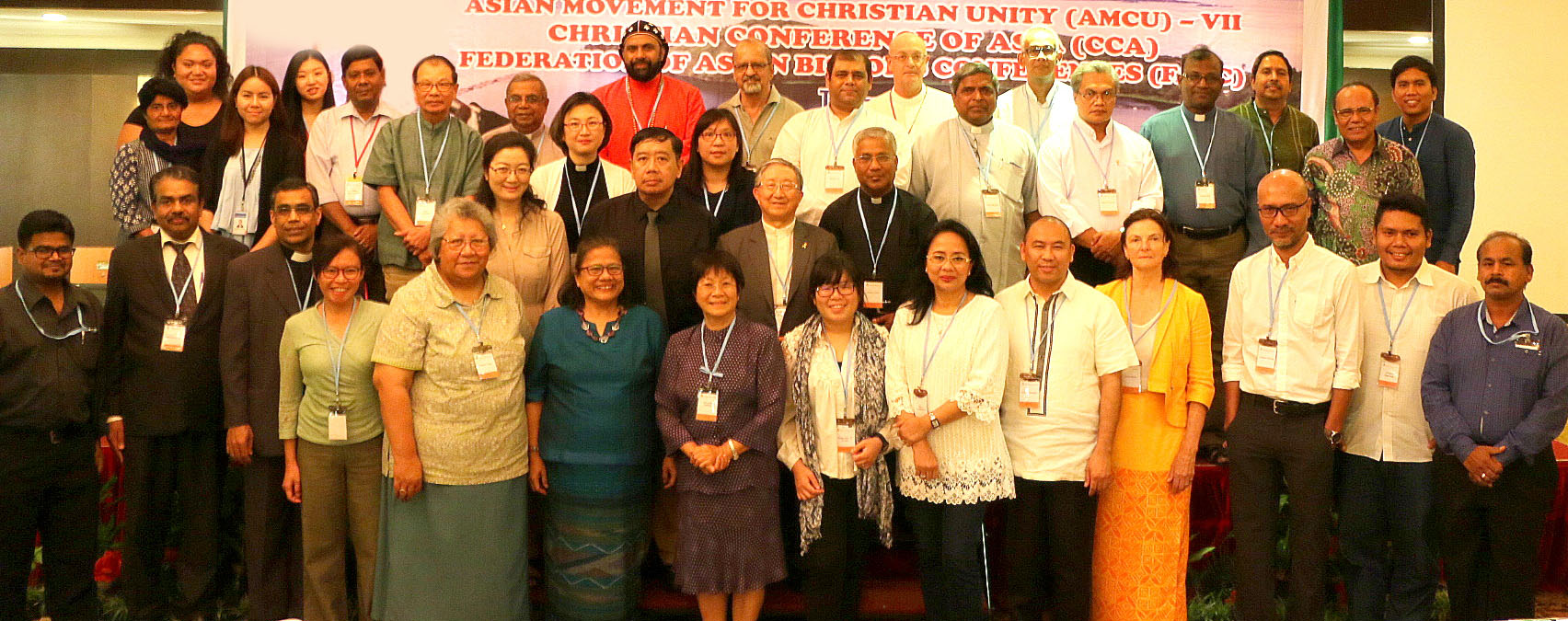Asian Movement for Christian Unity (AMCU) Responds to Climate Change Crisis

A regional consultation organized jointly by the Christian Conference of Asia (CCA) and the Federation of Asian Bishops Conferences (FABC) of the Roman Catholic Church, with the participation of the Asian Evangelical Alliance (AEA), agreed to undertake joint actions and concerted efforts to respond to the climate crisis.
Known as the Asian Movement for Christian Unity (AMCU) and initiated in mid 1990s by CCA and FABC, the Seventh summit of AMCU took place in Medan, Indonesia from 13 to 15 July focused on the theme, “Crisis of Climate Change in Our Common Home”.
Representatives of CCA, FABC and AEA from various Asian countries participating at the Seventh AMCU emphasized the urgency to encourage Asian churches to join in a network of diverse groups, including non-governmental organizations, and to engage in educational programmes that aim to raise the consciousness of the people as well as to engage in advocacy actions to mitigate climate change.
Hosted by CCA and its member church in Indonesia, the Huria Kristen Batak Protestan (HKBP), the consultation was attended by about 50 participants from various Asian countries.
The themes addressed at the consultation included the impact of climate change in Asia, biblical -theological reflections, ethics of eco-justice, Pope Francis’ Laudato Si and its significance, advocacy to mitigate the effects of climate change as well as plans for joint actions on how to move forward for the ecological renewal and eco-justice in different Asian contexts.Fr. Alwyn D Silva (India), Dr. Reynaldo R Ty (CCA / The Philippines), Prof. George Zachariah (India), Rev. Betsan Martin (New Zealand), Fr. Pius K. Fernando, (Sri Lanka) and Rev. Jung Eun Moon (CCA/South Korea) led various sessions.
Dr. Mathews George Chunakara, General Secretary of CCA, in his introductory remarks stated that the initiative of AMCU by CCA and FABC since 1994 envisioned joint actions with an aim to foster wider ecumenism not only at the regional level, but also at national and local levels in Asia. As the impacts of climate change increase every day, degradation of ecological balances and risks to both humans and the environment also increase, and in this situation, Christians cannot negate alarming signals of the crisis of climate change.
Fr. William LaRousse, Secretary of the Ecumenical Relations of FABC, said that since the joint initiative of AMCU began, the main focus was on “making visible our unity in Christ” and this was aimed at studying the theology of ecumenism, sharing vision of Christian unity, and building on what unites while overcoming what divides – all from their respective perspectives including the socio-political issues.
The participants in their final analyses concluded that the Church, together with non-governmental organizations, can build a network to help build awareness and mobilize citizens for collection action, as well as promote a change in lifestyle.
Various participants shared their local situations on effects of climate change: in mainland Southeast Asia, specifically Myanmar and Thailand, deforestation and the use of Genetically Modified Organisms(GMOs) which contaminate indigenous organic crops are major concerns; the culture of instant gratification contributes to pollution and climate change. In South Asia, the poor are most affected in Bangladesh, India, Pakistan, and Sri Lanka. Major problems in these countries include deforestation, urbanization, and multinational profits. Major concerns in the rich countries of Asia, such as Taiwan, South Korea, and New Zealand, major concerns include extreme weather conditions, floods, droughts, landslide, oil spills, water contamination, overconsumption, and excessive energy use.
Participants visited the campus of Universitas HKBP Nommensen in Medan to plant several trees as a small gesture to engage in small efforts to mitigate climate change.










